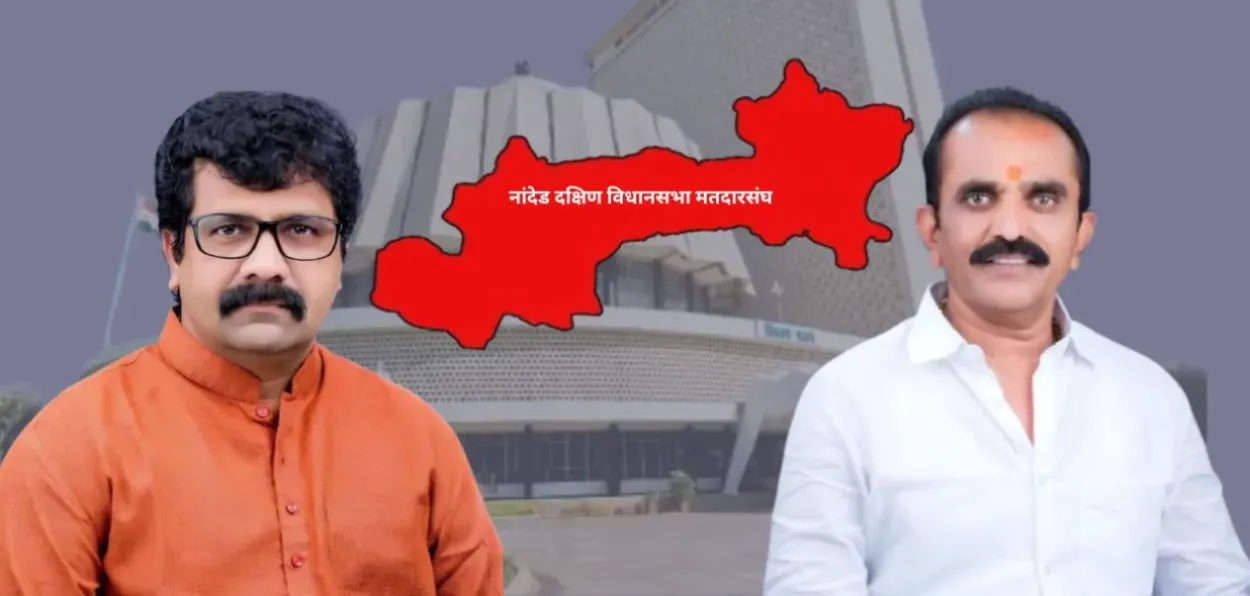
Shahbaz M. Farooq Maniar
Nanded City located on the Maharashtra-Telangana border is a large Muslim population and known for its multicultural image. It also houses the grave of the tenth and last Guru of the Sikhs, Guru Gobind Singh, making it a major Sik pilgrimage site.
According to the census of 2011, the population of the Muslims in Nanded is 28.43%, the Buddhists 16.36%, and the Sikhs 1.62% of the total population. This means that about 47% of the people of this city are from the minority community.
Also, Nanded has given four Chief Ministers to Maharashtra so far. Shankarao Chavan of Congress and his son Ashok Chavan, each have been elected twice. Congress has dominated the city since independence.
Telangana's Asaduddin Owaisi's party MIM contested the 2012 Nanded Municipal Elections and people elected its 11 members who mostly spoke about Muslim issues in the campaigning.
MIM forayed into Maharashtra’s politics through the Nanded Municipal Elections. This highlighted the Muslim politics. Nanded City’s two assembly constituencies: Nanded North and Nanded South are semi-urban. In Nanded South, 23.5% of voters are Muslims and 17% are from the Dalit community.
Hence, the support of both Muslim and Dalit communities is essential for any candidate to win elections here. Analyzing the data of the last two assembly elections, this point is revealed.
Votes secured by candidates in the 2014 Legislative Assembly elections
1. Hemant Patil (Shiv Sena): 45836
2. Dilip Kandkute (BJP): 42629
3. Moenb Syeed (IIM): 34590
4. Omprakash Ponkani (Congress): 31762
5. Anwar Javed (BSP): 4431
After the success in the 2012 Nanded Municipal Corporation elections, the MIM contested the 2014 assembly elections with full strength. MIM was popular among the Muslim community, especially the youth. However, despite his popularity, MIM candidate Syed Moin secured only 34,560 votes, mostly from the Muslim community and he lost the elections.
The election was won by Shiv Sena's Hemant Patil who secured 45,836 votes.
Votes secured by candidates in the 2019 Legislative Assembly elections
1. Mohan Humbarde (Congress): 46943
2. Dilip Kandakurte (Independent): 43351
3. Rajshree Patil (Shiv Sena): 37066
4. Farooq Ahmed (Deprived): 26713
5. Saber Chaus (MIM): 20122
In the 2019 Lok Sabha elections, Prakash Ambedkar changed his Bharip Bahujan Federation to Vanchit Bahujan Aghadi. By joining the Dalit, Muslim, and small OBC communities, they formed a grand coalition called Isa Naam.
He allied with the MIM, which benefited Imtiaz Jalil in the Aurangabad Lok Sabha constituency, and he became an MP.
However, this alliance soon broke down and both parties contested the 2019 Maharashtra Assembly elections independently.
Farooq Ahmed of Vanchit and Saber Chaus of MIM were in the fray in the 2019 assembly elections from the Nanded South region. Muslim votes were divided. Farooq Ahmed of Vanchit got 26,713 votes, while Saber Chaus of MIM got 20,122 votes.
Vanchit tried to create a Dalit-Muslim equation by fielding Farooq Ahmed as its candidate, but the MIM fielded a Muslim candidate and this ended up splitting the Muslim vote and both lost the contest. The total votes polled in their favour were 46,835, and even their combined strength was nowhere close to the score of the winning candidate.
The remaining 19 Muslim candidates polled around 4,000 votes in the 2019 assembly elections. Had the Vanchit and MIM contested jointly, their joint candidate would be a sure winner.
Mohan Humbarde, a new face who was expelled by Congress won by securing 46,943 votes.
Since 2014, this assembly constituency has witnessed a four-cornered contest. This time also five major candidates are in the fray. So the equation for winning will remain the same as before. A candidate who gets close to 50,000 votes has a higher chance of winning.
Vanchit has again nominated Farooq Ahmed while MIM has Syed Moin as its candidate. This means two strong Muslim candidates were in the fray in the 2019 assembly elections. After losing the last election, Farooq Ahmed has been trying to create a Dalit-Muslim equation for the last five years.
The special thing is that Syed Moin from MIM filed his nomination on the last day of filing nomination papers. Syed Moin is a strong Muslim candidate, but MIM is not as dominant in the region as earlier.
Despite this, confusion has arisen among Muslim voters due to two the presence of Muslim candidates.
Traditional Muslim voters of Congress may also vote for Congress candidate Mohanrao Humbarde to some extent. But in this situation, Muslim votes are likely to be divided among three candidates. Dilip Kandakurte had secured 43 to 44 thousand votes in the last two elections. He maintained his vote count despite BJP contesting the election as an independent. This time also he is in the field as an independent candidate. It is expected that he will get almost as many votes as he got earlier.
Shiv Sena (Shinde faction) has nominated Anand Tidke. Shiv Sena has 35 to 40 thousand votes in this constituency. In 2014, Shiv Sena's Hemant Patil secured 45,836 votes. This time too Shiv Sena is likely to get around 35 to 40 thousand votes.
This time, the main contest in the Nanded South assembly constituency is between Vanchit K Farooq Ahmed and independent candidate Dilip Kandakurte. Kandakurte will try to increase his vote count from 43 to 44 thousand to 50 thousand, while Farooq Ahmed will try to prevent the division of Muslim votes.
ALSO READ: "Kashmir's turmoil helped women to excel while men lagged due to changing values"
If the votes of the Dalit community and the majority of the Muslim community go for one candidate, then Farooq Ahmed can cross the mark of 50,000 votes. How many more votes Dilip Kandakurte can add, and how many Dalit votes Farooq Ahmed can draw by stopping the division of Muslim votes, the math of victory of both the candidates will depend on this.
(The author is a senior researcher in the Department of Political Science and Civics, University of Mumbai)
